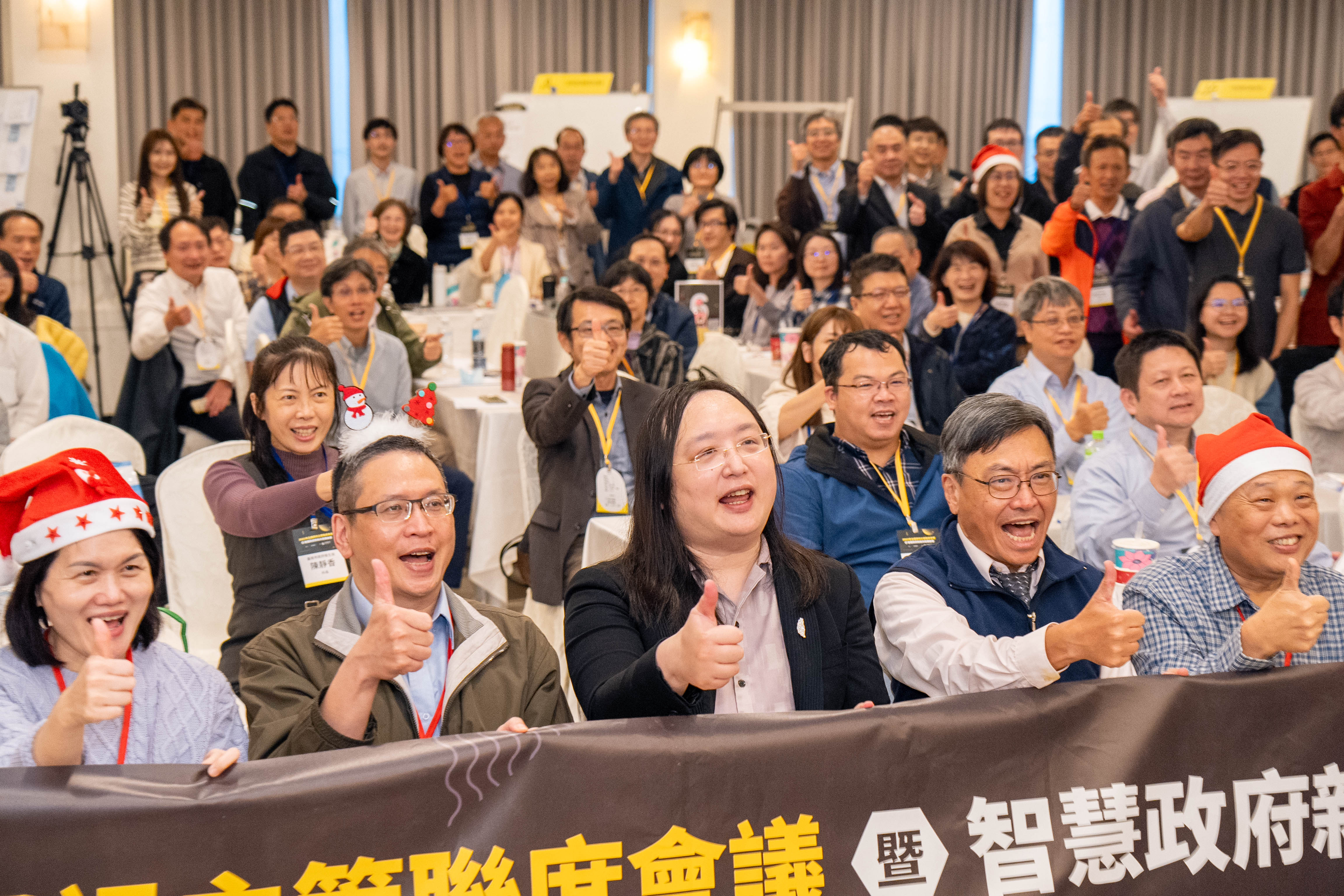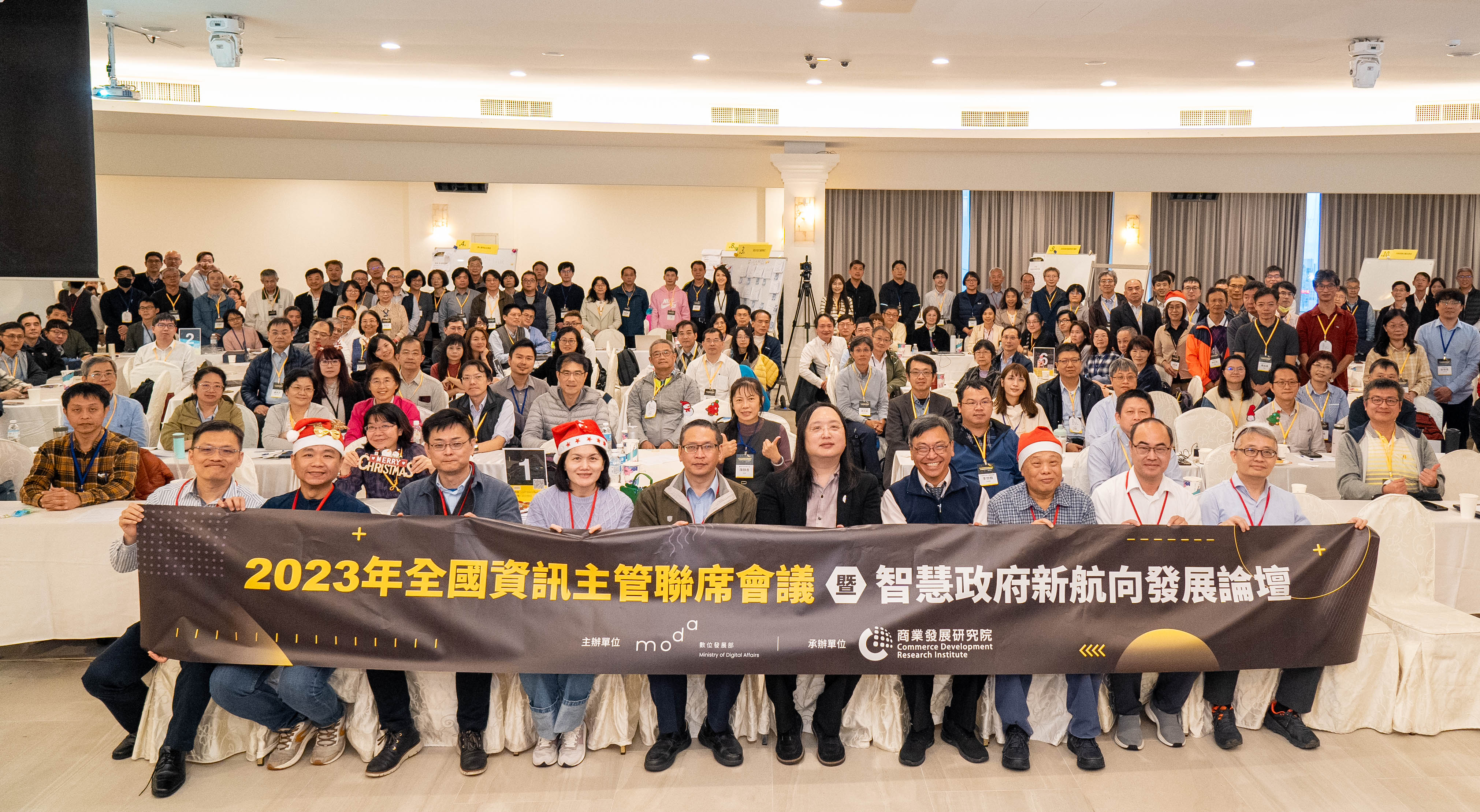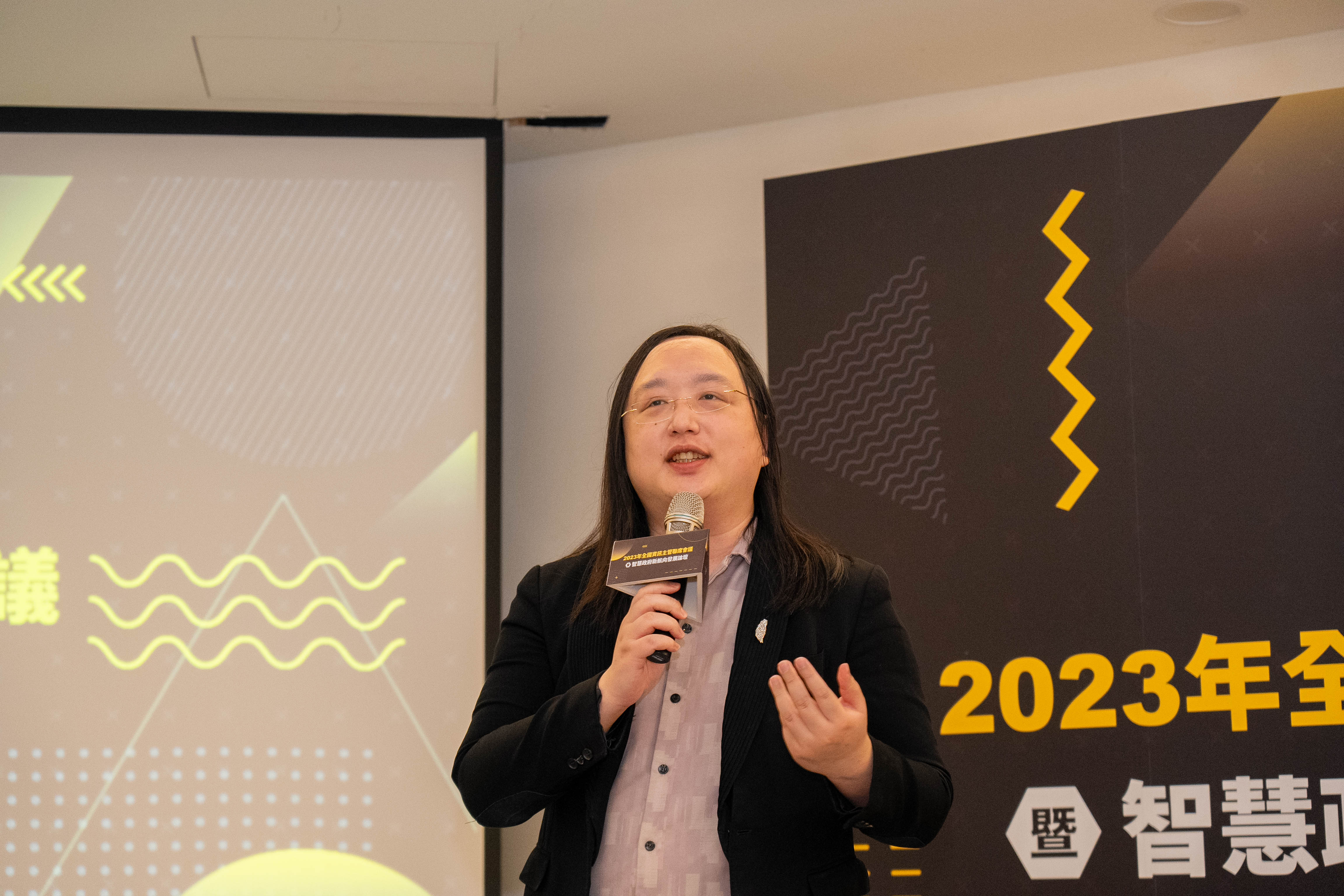Moda Holds Information Manager Joint Meetings to Collaborate with Various Ministries and Outline the Blueprint for Development of Digital Government
The Ministry of Digital Affairs (moda) hosted the "2023 National Information Managers Joint Meeting and Digital Government New Direction Development Forum" for two consecutive days, starting today (8th). Over 150 information managers and personnel from various levels of government agencies have been invited to participate, with the goal of consolidating consensus on the future development of digital government. Minister Audrey Tang was also in attendance to elaborate on moda's goals and related policies for promoting digital public infrastructure. She hoped that the outcomes of this event will provide a concrete direction for the government’s efforts in promoting digital transformation.
The moda pointed out that digital government is a pivotal aspect of global digital transformation. Collaborating with various ministries and agencies, the moda is implementing the "Digital Government Program 2.0" (2021-2025), emphasizing data-driven enhancement in the quality of government digital services. The program aims to employ evidence-based approaches to support government decision-making and elevate the overall quality of governance. As the 'Digital Government Program 2.0' approaches its conclusion at the end of 2025, moda initiated the collaboration process by inviting information managers from dozens of central government agencies starting in September of this year. These collaborative efforts take the form of workshop-style co-creation meetings, where participants work together to plan the next stage of digital government development.
This year's National Information Managers Joint Meeting continues under the theme of "Consolidating Consensus on the Development of Our Digital Government." It has extended invitations to information units from the Executive Yuan, Legislative Yuan, Examination Yuan, local governments, and more, with a total participation of over 150 information unit managers and information strategy planners. Various activities, including world cafés and special lectures, have been organized to facilitate the exchange and sharing of experiences among attendees. The aim is to shape a consensus on the future development of our digital government and to plan the framework and direction for the Digital Government project scheduled for launch in 2026.
In her speech at the joint meeting, Minister Tang highlighted the moda’s commitment to addressing common digital needs and establishing a convenient and secure digital infrastructure environment in the year since its inception. The ministry ensures that systems adhere to rigorous standards for data security, privacy protection, convenience, and accessibility. Notably, the T-Road initiative has connected 38 agencies, handling 90 data transmission tasks. The T-Road data transmission mechanism has been adopted for cross-agency data reconciliation and consolidation efforts, such as the Judicial Yuan's 'Citizen Judges' and the National Defense Mobilization Agency's 'All-out System.' Furthermore, aligning with the Executive Yuan's anti-fraud strategy, moda has introduced a short URL service and a dedicated 111 SMS platform exclusively for government agencies. These initiatives aim to provide trusted sources of government information, reinforcing public trust in the government.
Minister Tang stated that these achievements are the foundation for building Taiwan's digital public infrastructure. With the support of the Executive Yuan, the moda will officially integrate digital construction into the national public construction. This joint meeting provides an opportunity for public servants who will play a pivotal role in future digital public construction. Ahead of the conclusion of 'Digital Government Program 2.0,' they can collaboratively participate in shaping the future of digital government. The moda will collaborate with various units to formulate the next phase of digital government initiatives.
The moda clarified that the establishment of the National Information Managers Joint Meeting aims to advance cross-domain integration and governance, aligning with government information development policies. The initiative facilitates the exchange of information technology and experiences among government agencies. Launched in 2012, the meeting has been held annually for 11 years and has continued to be organized by moda since its inception last year.
During this National Information Managers Joint Meeting, experiences and suggestions for advancing digital government in the public sector were gathered through world café activities. Utilizing brainstorming methods aimed at fostering creative thinking, participants worked to build consensus on the developmental direction of digital government in the public sector. Key topics included 'Proactive and Precise Government Services,' 'Enhancing Government Operational Efficiency with AI Technology,' and 'Ensuring the Continuous Operation of Government Digital Services.' These topics were actively promoted by the attendees as important focus areas.
On the second day of the joint meeting, the Digital Government New Direction Development Forum featured special lectures. Allan Yin, Chief Technology Officer of DataDecision.ai, presented on 'Innovative AI Technology Integration: The Journey of Digital Transformation in the Public Sector,' and Dr.Chuan-Te Ho, President of the National Institute of Cyber Security, delivered a presentation titled 'The Power of Change and Inspiration: The New Generation of Digital Government and Sustainable Taiwan.' These sessions enabled attendees to grasp opportunities for AI applications in the public sector and gain insights into future trends in government digital development. The forum also included a digital new technology exhibition and experience area, allowing participants to witness and experience these technologies firsthand.
The moda announced that, during this joint meeting, three future development goals for the digital government were proposed: 'Convenience,' 'Efficiency,' and 'Inclusiveness.' Three main tools were outlined: 'Data,' 'Intelligence,' and 'Resilient Operation and Trust.' These reflect aspects that information managers prioritize when crafting the blueprint for the future development of digital government. The moda emphasized the common goals of strengthening the digital governance capabilities of government agencies and creating public service value. In the future, they plan to continue understanding the public's needs through evidence-based decision-making models, collaborating with cross-ministry cooperation to promote government digital services, and thereby establishing a transparent, trustworthy, and efficient digital government.


